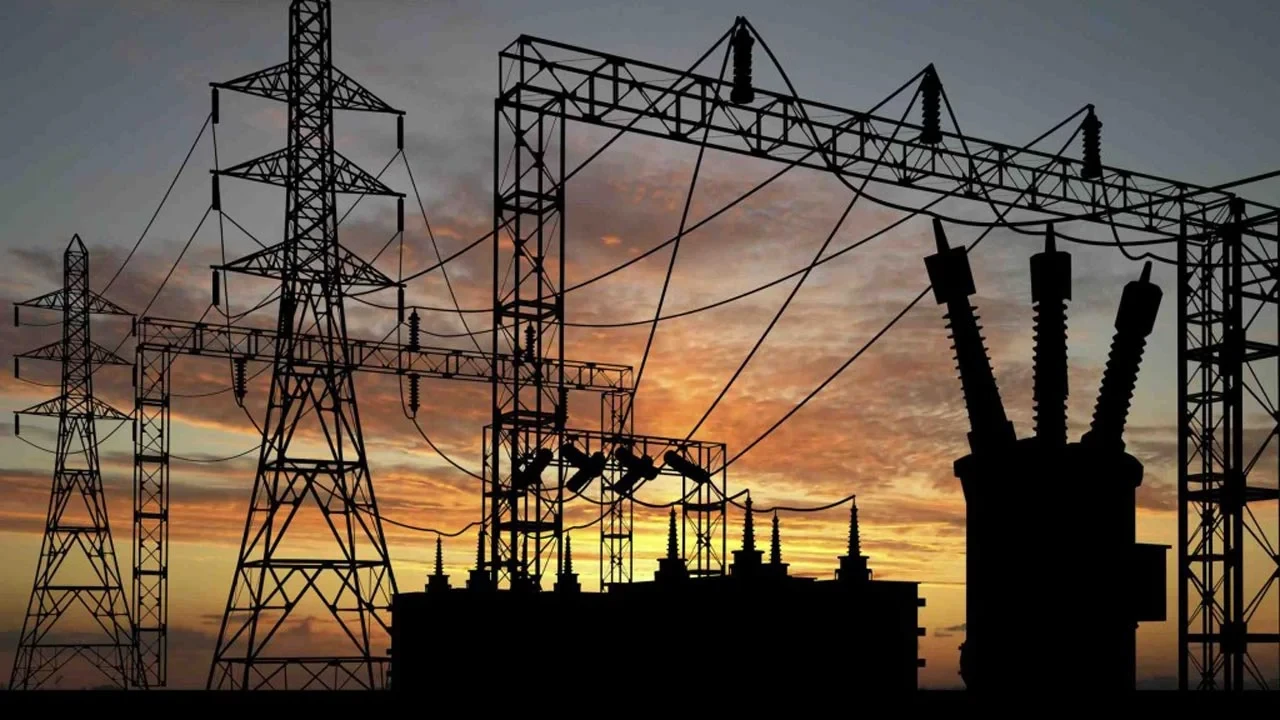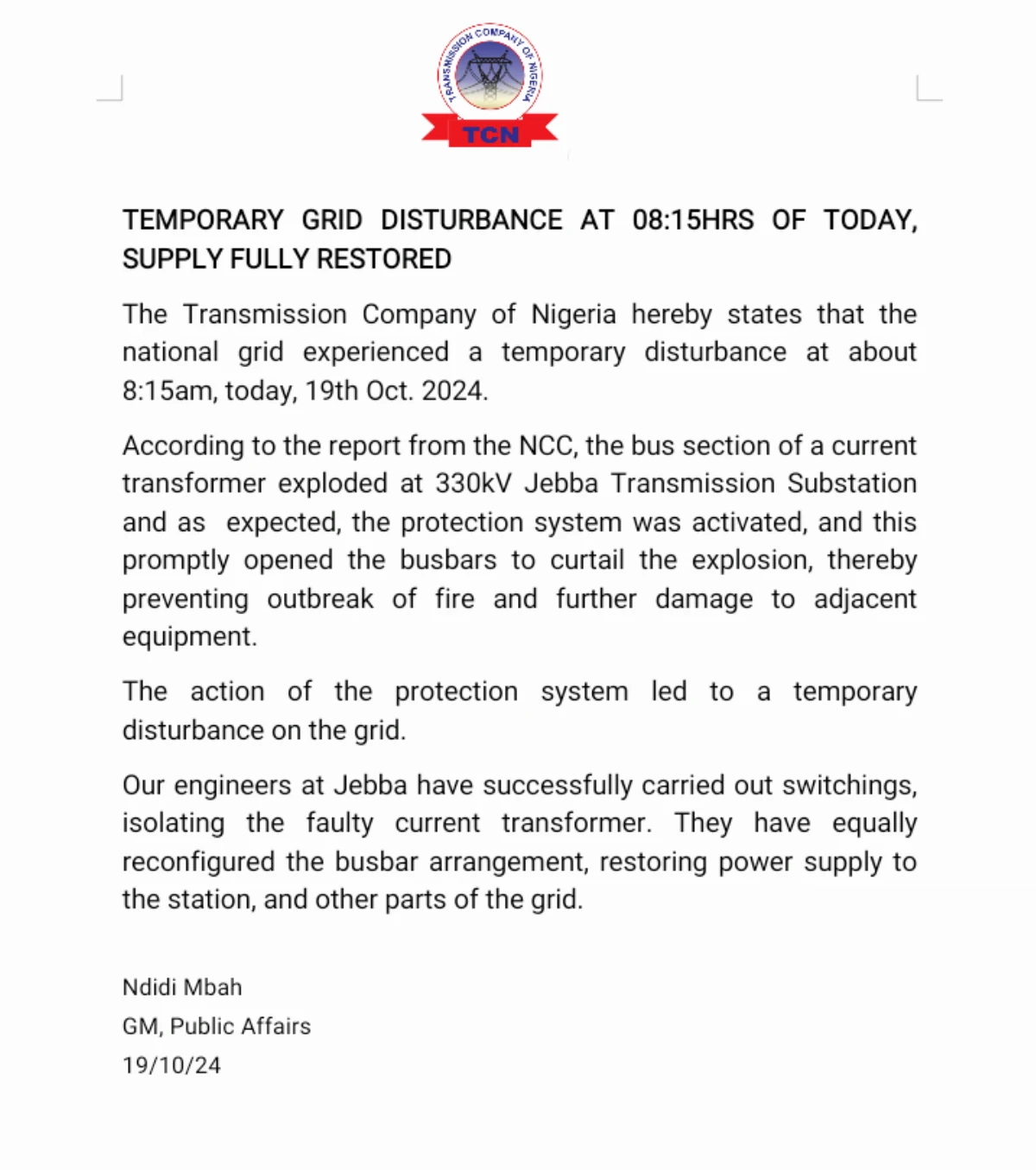Another national grid collapse in Nigeria sparks public outrage and revisits Tinubu's electricity promises. Read the latest TCN update and expert analysis.

Nigeria once again plunged into darkness following yet another collapse of the national electricity grid on October 19, 2024, at 8:15 am. The Transmission Company of Nigeria (TCN) has released an update detailing the events that led to this latest grid disturbance, while public reactions on social media and political commentary have added fuel to the ongoing debate on Nigeria's electricity crisis.
According to the TCN, the temporary grid disturbance was caused by an explosion in the bus section of a transformer at the 330kV Jebba Transmission Substation. The protection system quickly activated, opening the busbars to prevent a fire or further damage to surrounding equipment.
While the disruption was brief, it impacted the power supply to several areas. TCN’s engineers swiftly isolated the faulty transformer and restored power by reconfiguring the busbar arrangement.

Tinubu’s Promises Revisited
President Bola Tinubu's previous campaign statement resurfaced on social media as the grid collapsed again. In a bold pledge during his campaign, Tinubu had assured Nigerians that they would “have electricity by all means necessary” and would no longer pay for estimated bills. He went on to say, “A promise made is a promise kept. If I don't keep this promise and I come back for a second term, don't vote for me.”
This statement has reignited discussions on the efficacy of the government’s energy policies, especially in light of multiple grid failures and the slow pace of reforms despite the passing of the 2023 Electricity Act.
Social Media Outrage
Nigerians have taken to X (twitter) to voice their frustrations with the current state of power supply, questioning the capabilities of government officials, particularly Minister of Power Adebayo Adelabu. Serah Ibrahim sarcastically tweeted,
“Adelabu has a power bank that has more stability than the National Grid. He trusts his power bank more than he trusts his light supply.”

Another Twitter user, Tomi (@tomiwebstr), highlighted the compounding crises, stating,
National grid down for the third time this week, fuel is way too expensive, dollar on its way to 2k, & then we have fools telling us Tinubu drives around the city at night like Batman.
During an interview with Arise News, former Chairman of the Presidential Taskforce on Power Sector, Engr. Beks Dagogo Jack, pointed out a critical gap in Nigeria’s energy infrastructure. He explained,
We are a country of over 200 million people with a population growth rate of 2%. Our electricity requirement is about 50,000 Megawatts, but we are struggling to make 5,000 Megawatts, which is the root cause of the grid collapse.
Jack’s comments shed light on the underlying issues: Nigeria is barely producing 10% of the electricity it needs, creating a high demand that continually overwhelms the fragile grid.
Read also:
Conclusion
The October 2024 grid collapse is a stark reminder that Nigeria’s energy sector remains on shaky ground. While the TCN has once again restored power, the incident has reignited public outcry, with many Nigerians questioning whether the government’s promises to stabilize the power supply will ever come to fruition.
As the country continues to grapple with these challenges, it’s clear that a long-term solution—rooted in modernizing infrastructure, improving generation capacity, and ensuring efficient distribution—is urgently needed. Without this, Nigeria’s power sector will continue to fail its citizens, with each blackout underscoring the deepening crisis.

